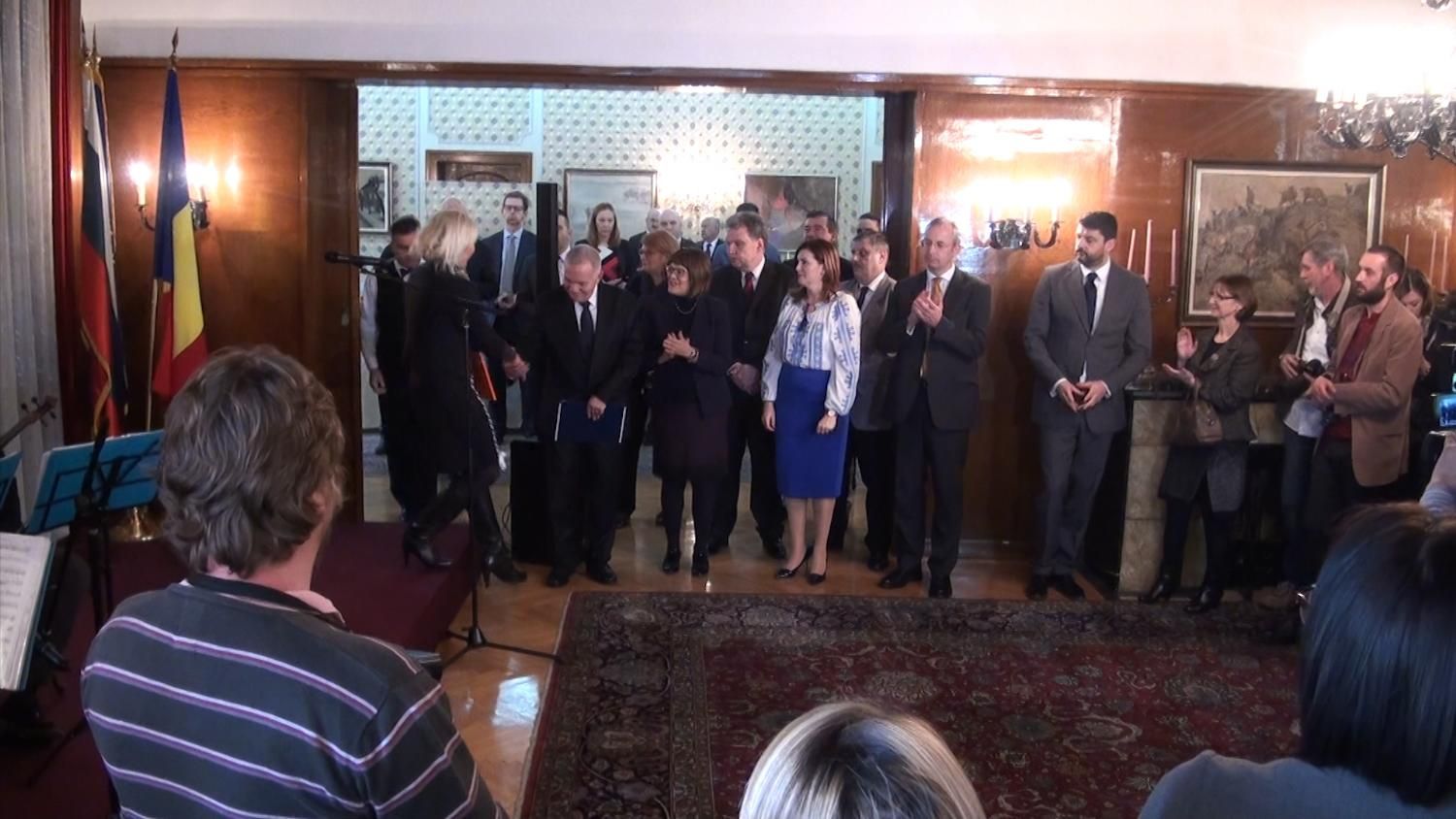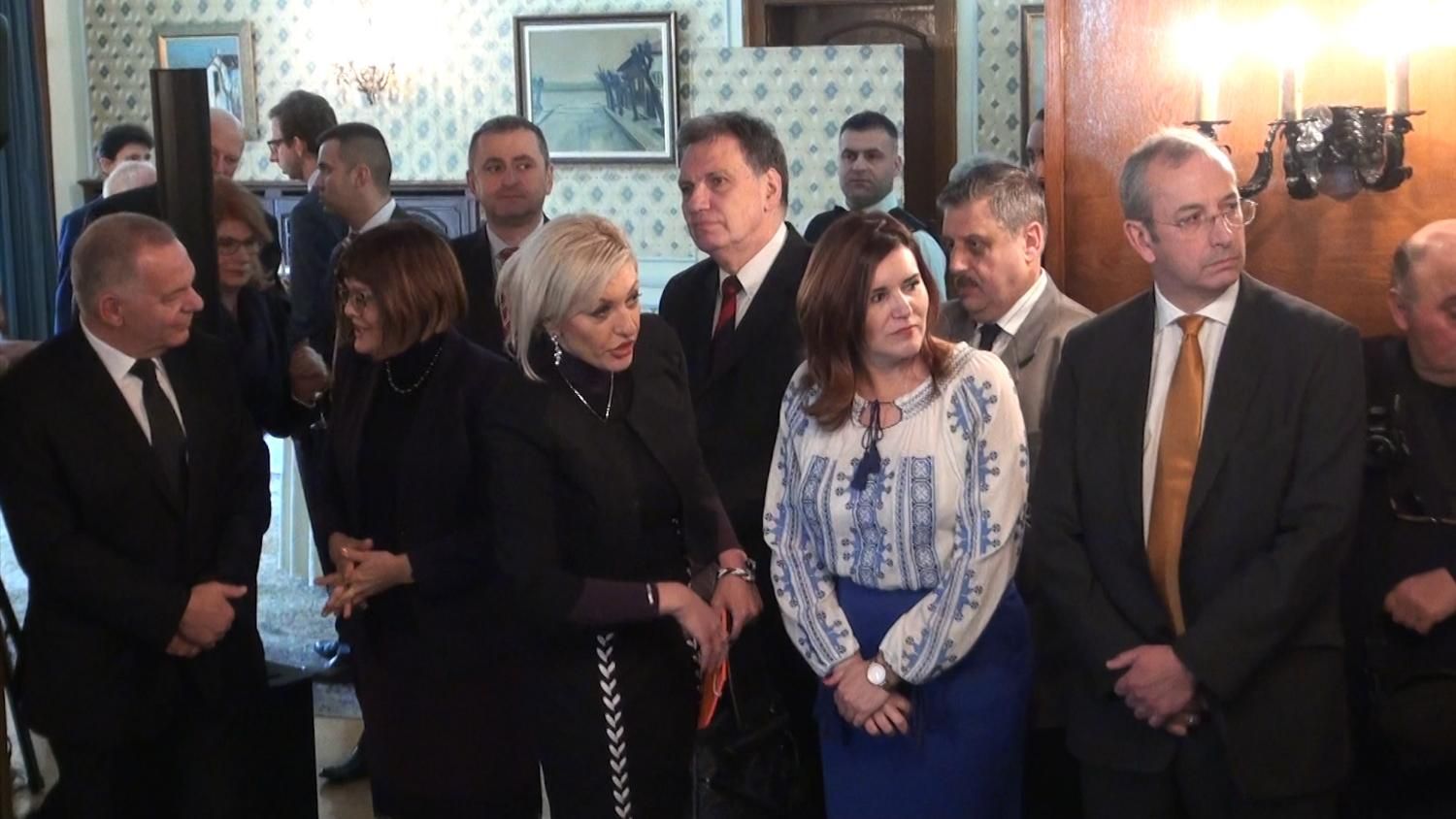Today, Bulgaria and Romania celebrated in Belgrade the 10th anniversary of their EU membership. On this occasion, the Head of the EU Delegation to Serbia Michael Davenport said that those two countries had invested a great deal of energy in the transformation of their political system and economy and thus showed firm resolve to succeed. “Both countries contribute heavily to the EU and have helped to improve stability and safety in South East Europe,” Davenport said and added that both Bulgaria and Romania were strongly committed to Serbia’s accession process within the EU enlargement.
Bulgarian Ambassador Radko Vlaykov said that stability and predictability of the EU rules and standards created favourable conditions for a considerable increase in foreign investments in Bulgaria. “Today, full participation of my country in the European family embodies and combines our European history and our European future and Europe is now a part of our every-day life, while Bulgaria has established itself as an equal participant in the debate for the future of our continent,” Vlaykov said. Bulgarian Ambassador said the advantages that the EU membership provided to all its citizens include both the more general and the more practical aspects of life, adding that the public trust in Bulgaria towards the EU institutions remains steadily high.
Serbia, like Bulgaria, has many centuries of history in Europe. “The Serbian people have too over the centuries kept and preserved the European spirit in their hearts. I believe that today this European spirit contributes to Serbia making the strategic, European, choice,” Vlaykov said and expressing hope that active efforts of the Serbian Government for consistent reforms would continue and enjoy support from Serbian citizens. “Our vision is, that the European project can be successful only with the further integration of Serbia and the other countries of the Western Balkans,” Vlaykov said.
 Romanian Ambassador Oana-Cristina Popa said that the life of every Romanian was the product of Romania’s EU integration. “The EU was not the only one that has the power to change us. We also have the power to change the EU, by voting our representatives in the European Parliament, by contributing to the decision-making process in the European Commission,” said Popa adding that a membership to the EU is what every country makes of it.
Romanian Ambassador Oana-Cristina Popa said that the life of every Romanian was the product of Romania’s EU integration. “The EU was not the only one that has the power to change us. We also have the power to change the EU, by voting our representatives in the European Parliament, by contributing to the decision-making process in the European Commission,” said Popa adding that a membership to the EU is what every country makes of it.
“Serbia is faced with its own issues and obstacles on its EU path, but I believe that it also has its own specific capacity and advantages to bring to Europe,” said the Minister Jadranka Joksimovic. She said that the EU would not be complete without South East Europe and Serbia, adding that the accession does not entail the loss of identity, but offers Serbia an opportunity to give the EU the most exciting aspects of its tradition. “As a good neighbour, we believe that Serbia could only benefit from the fact that it has neighbours who have successfully completed the same journey,” Joksimovic said and added that Serbia could draw important lessons from Bulgaria and Romania’s positive experience.
According to her, membership in the EU is Serbia’s strategic goal and even though it may face certain issues and obstacles on such path it is thanks to commitment that it will yield results and soon open new negotiating chapters.
Joksimovic said that throughout the EU accession negotiations the Government of Serbia was considerate of its neighbors, taking into account regional differences, and added that reform was key to improve the society and living conditions of its citizens.




